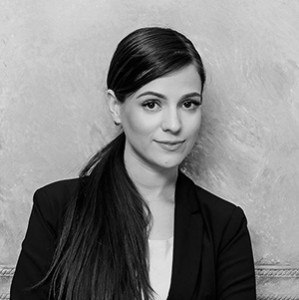The Neighbourhood Europeanisation is argued to be instrumental for the diffusion of the European values in Ukraine and increased attachment of the Ukrainian population towards Europe. The paper inquires how the idea of Europe has evolved and has been perceived in Ukraine since the country‟s independence. Mixed methods approach combining both qualitative and quantitative methods are employed in this paper in order to draw on the theoretical underpinnings of the Europeanisation process and better explore Europeanisation narratives in Ukraine. Based on survey data, the analysis depicts how the idea of Europe has acquired legitimacy in the eyes of Ukrainians.
The paper was written during Pontica Magna fellowship at the Institute for Advanced Study “New Europe College”
Since proclaiming its independence (1991), Ukraine has been searching for a long term political strategy both at the foreign and domestic levels. Such endeavour has meant a permanent vacillation between the European Union (EU) and Russia which, in turn, has generated cleavages within the Ukrainian political establishment. Moreover, it has left a complicated ground for alterations domestically.
The resistance of the local elites to take on necessary reforms has weakened Ukraine which found itself blocked at the decision-making levels for most of its postindependence years. Consequently, the European integration perspectives for the Ukrainian state have been relatively vague, whilst the cooperation initiatives between the EU and the Ukrainian state have been far less consistent than the ones offered to the Central Eastern European countries (CEECs). Finally, the lack of a full-fledged membership perspective has significantly thwarted Ukraine‟s European aspirations.
All the aforementioned factors have, thus, challenged the EU‟s transformative agenda in post-Soviet Eastern Europe, the so-called Eastern neighbourhood.
In the case of Ukraine, the Europeanisation process has probably been the most contested. The European-ness perception and feelings are still nascent among Ukrainians. More than half of the population does not perceive itself European.
However, the attachment towards the idea of Europe1 is slowly but constantly increasing. This shows that gradually the idea of shared European values, principles and norms is taking root in Ukraine.
The present study inquires how the idea of Europe has been evolving in Ukraine. The paper argues that the Europeanisation process has been instrumental for the diffusion of the European values in Ukraine and for increased attachment of the Ukrainian population towards Europe. By focusing on the case of Ukraine, this paper arguably enables us to derive not only country-specific but also basic findings about the transmission mechanisms of the Europeanisation process beyond the EU‟s border in a country marred by political and economic instability and divergent societal views. In the same vein, the selected case is relevant since Ukraine has been regarded as one of most compatible countries among the Eastern neighbours able to adopt parts from the EU‟s sectoral acquis.
This study employs a mixed methods approach where both qualitative and quantitative methods are integrated. The explanatory methodological phase draws on the theoretical underpinnings of the Europeanisation process, particularly with regards to Neighbourhood Europeanisation. For exploring the Europeanisation narratives in Ukraine, this study centralizes the findings of the most recent surveys (2013-2015) conducted in Ukraine by the University of St. Gallen (Switzerland) within the project “Region, Nation and Beyond: An Interdisciplinary and Transcultural Reconceptualization of Ukraine” and by the Razumkov Centre (Ukraine). Additional evidence has also been obtained during the survey conducted in the Romanian – Ukrainian borderland in May – June 2016 within the project “Bukovyna as a Contact Zone”.
The paper is structured around a question-based model developed by Olsen: what? how? and why? Hereby, in order to address the what-question a definitional explanation towards the complexity of the contested notion of Europeanisation is made. Exploring the Europeanisation patterns and their competing interpretations allows for better discussing the conceptual frames of the research having Ukraine as a case study. It also investigates how the norms and values influence the formation of identities and construct the idea of Europe beyond the EU‟s border. Afterwards the why-section further presents with empirical evidence the circumstances under which the Europeanisation process has unfolded in Ukraine. The question-based sections are followed by concluding remarks and summarizing findings.



